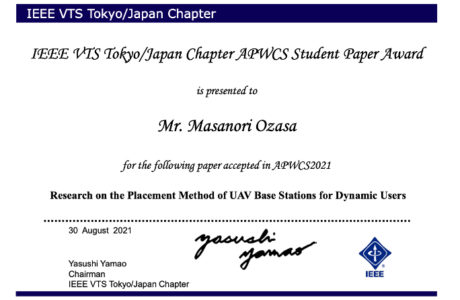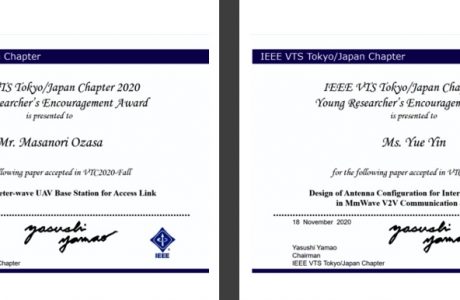Mr. Ricardo Santos did a presentation on GLOBECOM 2017 for his paper: Turning the knobs on OpenFlow-based resiliency in mmWave small cell meshed networks on 8th December 2017.
Title: Turning the knobs on OpenFlow-based resiliency in mmWave small cell meshed networks
Authors:
Ricardo Santos (Karlstad University, Sweden, Sweden)
Hiroaki Ogawa (Tokyo Institute of Technology, Japan, Japan)
Gia Khanh Tran (Tokyo Institute of Technology, Japan, Japan)
Kei Sakaguchi (Tokyo Institute of Technology & Fraunhofer HHI, Japan, Japan)
Andreas J. Kassler (Karlstad University, Sweden, Sweden)Abstract:
As a solution to cope with the increase of wireless network traffic for future 5G networks, the IEEE 802.11ad standard enables multi-gigabit connectivity within the 60 GHz spectrum. Since these networks typically have low range, a vast number of small cells is required to form a wireless backhaul that can be easily affected by temporary failures due to blockage/interference. Software-defined Networking (SDN) is a paradigm that allows the centralization of the control plane management, which can be applied to mmWave wireless backhaul networks. Using SDN enables the possibility of having resilience mechanisms in the network, such as Fast-Failover (FF) group tables in the OpenFlow (OF) protocol. In this paper, we analyse resilient forwarding configurations upon temporary link failures. We perform our evaluation on a 4 small cell testbed with multiple IEEE 802.11ad interfaces, showing how OF-based resiliency can be applied, through FF and the Bidirectional-Forwarding Detection (BFD) protocol. Our results show how BFD can be tuned to improve the link state monitoring, and how a local reactive failover mechanism can benefit ongoing traffic in small cell meshed backhaul networks.














Comments are closed.